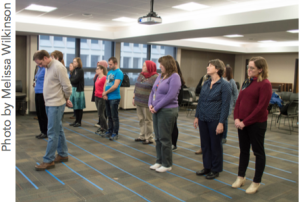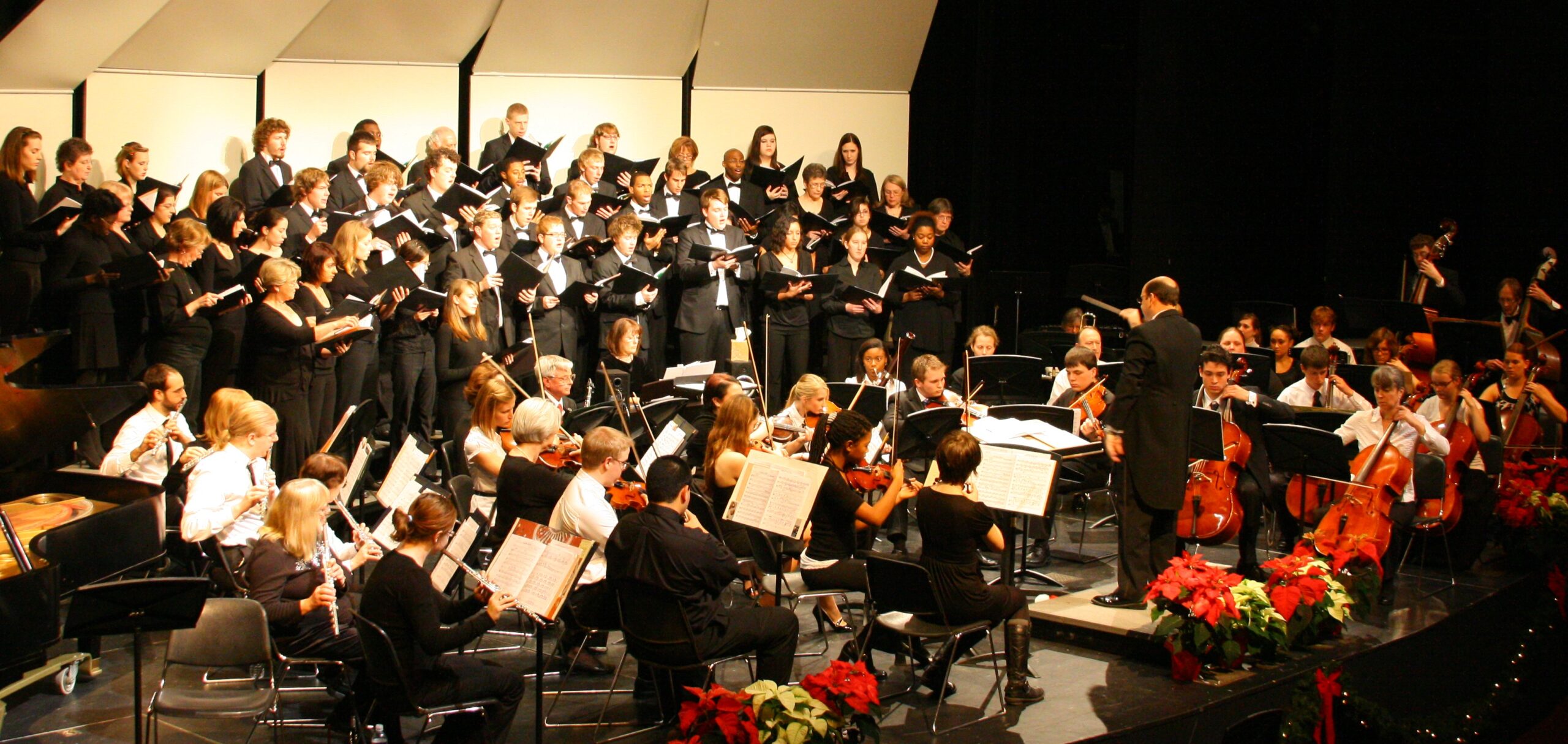Following social turmoil, activity encourages participants to think about privilege
By: Melissa Wilkinson
Editor-in-cheif
 After periods of social unrest following the Stockley verdict, Counselor Rhonda Adams hosted several listening circles for students, faculty and staff to release thoughts and feelings that might otherwise go unheard. The third circle occurred on Nov. 29 in BA 105.
After periods of social unrest following the Stockley verdict, Counselor Rhonda Adams hosted several listening circles for students, faculty and staff to release thoughts and feelings that might otherwise go unheard. The third circle occurred on Nov. 29 in BA 105.
“This started because of some unrest,” said Adams, addressing the circle. “Faculty, staff and administrators wanted to hear what you had to say, what you were thinking, what you were feeling.”
At the start of the meeting, Adams encouraged participants to channel the Kiva Native Americans, who used the concept of a circle to represent equality. There is no hierarchy in the circle, said Adams, nobody sitting higher than another.
The third listening circle followed similar rules to the first two; an object (in this case, a cup) was placed on a table in the center of the circle. Participants would take the cup, speak their mind, and replace it. Only the person with the cup could speak at any given time.
This time, however, Adams hosted an activity before the speaking portion. First, participants were asked to define what privilege meant to them. “Something you’re born with,” said one participant. “It’s an advantage I don’t have to explain,” said another.
Next, participants were asked to spread out in front of a series of tape lines. Adams read out a series of commands related to personal privilege such as, ‘Step forward if you grew up with two parents’ and ‘Step forward if you have your own computer and printer.’ After questions, participants were asked to look around at everyone else’s position.
“Take a look at who’s in front of you and think about if this were a race,” said Adams. “Think about things that have nothing to do with your efforts, like your starting point.”
After the activity, participants moved back into the circle to begin the discussion, which centered around privilege. Many of the speakers shared personal stories of how privilege, or lack thereof, affected their lives. Emily Neal, professor of political science, recounted her youth growing up with mixed-race cousins.
“I remember going to a playground right across my street,” said Neal. “I remember the kids there for the first time used the N-word to people I loved. I knew intuitively I could say something. I couldn’t articulate that it was because I was white.”
Meramec Communications professor Denise Sperruzza commented on the nature of teaching about privilege as a
privileged person.
“I teach about privilege and I know what privilege is. I understand it conceptually but you can’t know something on a deeper level without living through it,” said Sperruzza.
Sperruzza, who does safe zone training for LGBT youths, said she once felt uncomfortable performing the task as a straight woman, but has since learned not to apologize for her privilege and instead use the opportunity as a learning experience.
“I grew up Catholic so the guilt thing I know really, really well,” said Sperruzza. “I’m learning to undo some of that.”
Academic advisor Sebrina Colvin contributed to the topic of forgiveness, recounting her experience with racial battle fatigue, a term coined by University of Utah researcher William A. Smith describing the tendency of black students to experience physical discomfort when navigating historically white spaces. Colvin said that a few years ago she became exhausted trying to explain privilege to her white friends, some of whom she lost in the dispute, but she is now ready to try and mend
those relationships.
“At first I was so angry at how they responded,” said Colvin. “2015 and 2016, I felt like I had to prove it.”
The final part of the discussion focused on family, whether by blood or by choice. According to Adams, many students seek a familial relationship in their everyday lives where they can be held with unconditional positive regard. Neal said and that it’s up to STLCC faculty to help students feel welcome
at school.
“To constantly try to educate others about privilege is exhausting,” said Neal. “As faculty we must use our privilege to bring our experience back into the classroom.”
The listening circle ended with faculty pledging to help educate students about prejudice. ESL professor Lisa Wilkinson thanked participants for sharing their thoughts.
“I like listening. When people speak from the heart, it’s so powerful,” said Wilkinson.











